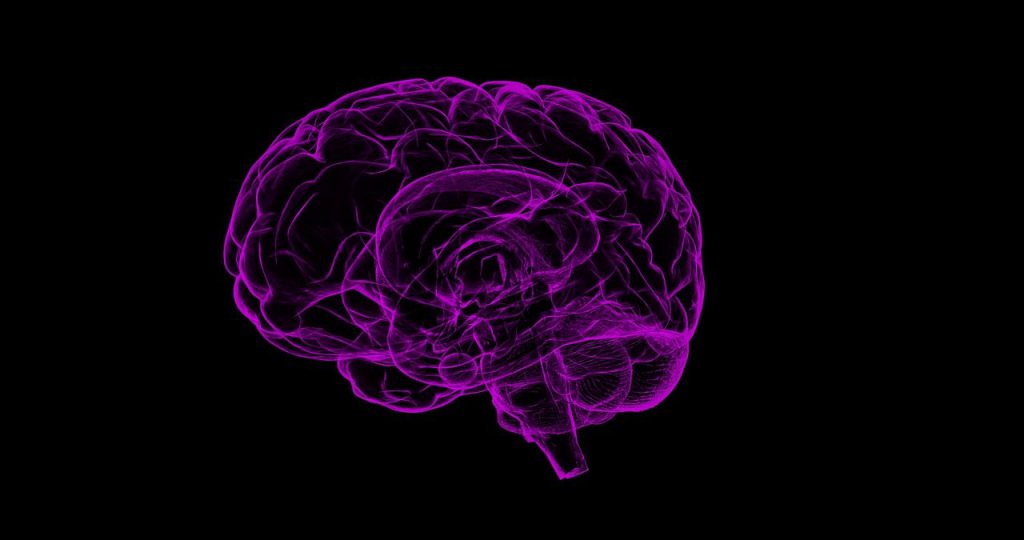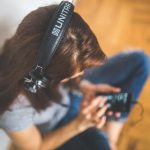
Hearing loss has always been portrayed as a stereotypical consequence of aging, but having to turn the television up louder may be the least of our worries. New research shows that hearing loss may have serious impacts on the health of our brains, and connections between hearing loss and dementia are beginning to show.
Contents
Research Shows a Link Between Hearing Loss & Dementia
Studies have started to link hearing loss and dementia, where mild hearing loss can potentially double the risk of developing dementia later in life. Moderate hearing loss carries with it a three times greater risk of developing the debilitating brain condition; severe hearing loss has a five times greater risk.
Dementia patients experiencing hearing loss have an accelerated cognitive decline compared to dementia sufferers without hearing loss. This accelerated rate may be as high as 30-50% faster than those with normal hearing.
We all experience a certain amount of cognitive decline related to aging, but studies have shown that people who experience hearing loss that affects their ability to speak with others experience a much faster rate of decline in their cognitive abilities.
This is not all bad news, however: if this connection between hearing loss and risk of dementia is real, then making it a priority to treat hearing loss aggressively could result in a reduction in cognitive decline over time and a reduction in people developing dementia.
Why Hearing Loss Affects Our Brains

How hearing loss exactly increases our risk of dementia is not fully understood, and research into the mechanism behind this relationship is in its infancy. However, there are some major theories.
One theory is that hearing loss and dementia share a common physiological pathway, meaning that if you have one, you’ll probably have the other. However, researchers have largely discounted this theory and believe the two conditions to be independent.
Another theory is that people with hearing loss are using more brain power as they strain to hear, compared to people with normal hearing, and that this “cognitive load” stresses the brain and leaves little energy for doing normal tasks like developing memory.
A third theory, supported by brain imaging studies, suggests that portions of the brain that process sound shrink because they do not receive adequate stimulation. It is unknown whether or not the brain can recover once this shrinking has occurred, so it may be important to treat hearing loss before such shrinkage occurs in order to reduce dementia risk.
Additionally, the social isolation associated with people who suffer hearing loss might also contribute to dementia risk because social isolation is a known factor contributing to an increased risk of experiencing cognitive decline and developing dementia.
How To Minimize Your Hearing Loss-Related Risk
There is hope, however, as some studies have shown that cognitive decline associated with hearing loss can be reversed. Patients with severe hearing loss showed a significant increase in cognitive abilities once they were fitted with cochlear implants and began auditory rehabilitation.
The bottom line is, if you have hearing loss or worry that you may be experiencing hearing loss, don’t wait and suffer in silence. Seek help. Make an appointment with your physician to talk about your options. The first step will be a hearing test with a licensed audiologist to determine the severity of your hearing loss.
If you are fitted with hearing aids, use them. Take the steps you need to protect your hearing, and by extension, your mental health.
Others Way to Lower Your Dementia Risk Factors
Taking care of your hearing health is just one way you can decrease your risk of developing dementia. There are other ways to lower the risk that will greatly benefit your mind and body.
1. Exercise

Maintaining physical activity as you age is a great way to reduce the risk of dementia because it benefits your cardiovascular health, keeps your weight down, and positively affects your mental health.
It’s important to have a combination of aerobic and resistance activities. Aerobic activities can include walking briskly, riding a bike, jogging, and swimming. Resistance activities are strength building exercises such as lifting weights or push-ups, or other activities that require you to use your muscles.
2. Eat Healthy
The next step you can take to stave off dementia risk is to eat healthily. A balanced diet means eating several portions of fruit and vegetables every day, making sure you get protein twice a week, reducing your sugar and sodium intake, including more complex carbohydrates in your diet and less saturated fat, and keeping your fluid intake to six to eight glasses per day.
Also, cut down on your alcohol intake. The side benefit to eating a balanced diet is that you will also ward off other debilitating conditions including cancer, diabetes, and heart disease!
3. Don’t Smoke
Not only does smoking greatly increase your risk of developing dementia, but it increases your risk for a whole host of other serious conditions such as lung cancer, diabetes, and stroke.
Quitting smoking is extremely difficult, so talk to your physician or pharmacist for advice; you might need support and they can point you in the right direction.
4. Challenge Your Brain

Your brain is an organ, not a muscle, but the “use or it lost it” mentality that we apply to muscles in your body also applies to your brain. People who stay mentally fit later in life have a much lower risk of developing dementia.
The key is to find something that you enjoy doing that challenges your mind, such as taking a class, learning a new language, doing a variety of puzzles, playing games, reading books, or even writing.
Stay socially active by visiting with and talking to friends and relatives as often as you can. Volunteering is another great way to stay mentally fit because it allows you to stay socially engaged.
Other Hearing Loss Related Issues
Hearing loss, if left untreated, can impact other areas of our lives.
Children born with or who develop hearing loss at an early age may have difficulties with speech and learning language skills. This can impact their self-esteem and social development, and cause them to have problems in school, which will put them at a severe disadvantage for succeeding in life as adults.
Adults with severe untreated hearing loss are often socially isolated because of their inability to communicate with others. This can lead to a cascade of negative effects such as poor eating and exercise habits, increased alcohol and tobacco use, which can then increase the risk of heart disease and other dangerous conditions. This withdrawal from social engagement also puts them at much higher risk for developing depression and dementia.
The information in this guide has been written using the following reliable sources:
https://www.hopkinsmedicine.org, https://hearnet.org.au, https://www.alzheimers.org.uk, https://www.aarp.org, https://www.alzdiscovery.org, https://www.ncbi.nlm.nih.gov







